Mastering the Art of Automation: How Machine Learning Transforms DevOps
Introduction:
In today’s rapidly evolving technological landscape, organizations are constantly seeking ways to optimize their processes and improve efficiency. One powerful tool that has gained significant attention is machine learning (ML). By leveraging ML algorithms and models, businesses can extract valuable insights from data, automate decision-making, and streamline operations. Integrating machine learning into DevOps workflows has emerged as a game-changing approach to achieving these goals. This blog post will guide you through the process of integrating ML into your DevOps workflow, enabling you to harness the full potential of automation.
1. Understanding Machine Learning in DevOps:
Before diving into the integration process, it’s crucial to understand the role of machine learning within the DevOps framework. DevOps is a collaborative approach that combines software development (Dev) and IT operations (Ops), aiming to deliver high-quality software products rapidly. Machine learning can be integrated into this workflow to automate various aspects, such as continuous integration, deployment, and monitoring.
2. Identifying ML Use Cases in DevOps:

To integrate machine learning effectively, it’s essential to identify suitable use cases within your DevOps workflow. Some potential areas where ML can bring significant value include:
– Continuous Integration and Testing: ML algorithms can automatically detect bugs, predict potential failures, and optimize test coverage, reducing manual effort and improving software quality.
– Continuous Deployment: ML can analyze past deployment patterns, identify performance bottlenecks, and suggest deployment strategies that maximize system stability and availability.
– Log Analysis: ML techniques, such as anomaly detection and natural language processing, can analyze system logs to identify errors, security breaches, and performance issues in real-time.
– Incident Management: ML algorithms can learn from historical incident data, helping to automate incident categorization, prioritization, and resolution, reducing downtime and improving response times.
3. Collecting and Preparing Data:
The success of any ML project hinges on the availability of quality data. In the context of DevOps, relevant data can include code repositories, test logs, deployment histories, system logs, and incident reports. Data collection mechanisms should be established to gather this information systematically. Additionally, data must be preprocessed to handle missing values, outliers, and ensure consistency and quality.
4. Building and Training ML Models:

Once the data is collected and prepared, the next step is to build and train ML models. Depending on the use case, different ML algorithms such as regression, classification, or clustering can be employed. It is essential to select the appropriate algorithm that aligns with the specific DevOps task at hand. Models can be trained using labeled data (supervised learning) or unlabeled data (unsupervised learning). Continuous evaluation and refinement of models are crucial to ensure accuracy and relevance.
Also Read: Unlocking the Potential of Generative AI: A Guide to AI and ML Development
5. Integration and Automation:
Integrating ML into your DevOps workflow involves automating processes using the trained models. This can be achieved through the following steps:
– Integration with CI/CD Pipeline: ML models can be seamlessly integrated into the CI/CD pipeline using APIs or custom plugins. For example, ML models can automatically trigger test suites based on code changes or make deployment decisions based on performance predictions.
– Log Monitoring and Alerting: ML-powered log analysis tools can continuously monitor system logs and trigger alerts in real-time when anomalies or critical issues are detected.
– Incident Management Automation: ML algorithms can aid in automating incident management by categorizing and prioritizing incidents, suggesting potential solutions, or even automatically triggering remediation actions based on historical incident data.
6. Monitoring and Maintenance:
Finally, it’s important to monitor and maintain the integrated ML models within the DevOps workflow. Regular monitoring allows for the detection of model drift, where the model’s performance may degrade over time due to changing data patterns or system conditions. Monitoring can involve tracking performance metrics, validating model outputs, and retraining models as needed. It’s also crucial to stay updated with the latest advancements in ML techniques and technologies to ensure continuous improvement and adaptability.
7. Collaboration and Communication:
Integrating machine learning into DevOps requires effective collaboration and communication among cross-functional teams. Encourage close collaboration between data scientists, developers, and operations teams to ensure a shared understanding of ML models, their limitations, and potential impact on the DevOps workflow. Clear communication channels and documentation of ML integration processes will foster better alignment and knowledge sharing.
8. Considerations and Challenges:
While integrating machine learning into DevOps can yield numerous benefits, there are a few considerations and challenges to be aware of. These include:
– Data Privacy and Security: ML integration requires access to sensitive data, so it’s crucial to implement robust security measures to protect data privacy and comply with regulatory requirements.
– Ethical Considerations: ML models should be designed and trained ethically, ensuring fairness, transparency, and accountability in decision-making processes.
– Skill Sets: Integrating ML into DevOps requires a combination of domain knowledge, data science expertise, and DevOps practices. Building a competent team with the right skill sets is essential.
– Scalability and Infrastructure: ML models can be resource-intensive, requiring scalable infrastructure to handle large datasets and high computational demands.
9. Continuous Improvement and Learning:

Integrating machine learning into your DevOps workflow is not a one-time task but an ongoing process. Embrace a culture of continuous improvement and learning, where feedback loops, monitoring, and iteration are valued. Actively seek feedback from stakeholders, track the impact of ML integration on key metrics, and make adjustments as needed. Encourage learning opportunities for team members to stay updated with the latest ML techniques and practices.
Conclusion:
In conclusion, integrating machine learning into your DevOps workflow with Nettyfy Technologies can propel your organization to new heights of automation, efficiency, and productivity. By harnessing the power of ML algorithms and models, you can automate processes, optimize decision-making, and unlock valuable insights from your data.
Through careful identification of ML use cases, data collection and preparation, model building and training, and seamless integration and automation, you can streamline your DevOps practices and drive continuous improvement. Embracing a collaborative approach and fostering open communication among teams will ensure the successful integration of ML into your DevOps workflow.
Remember that the journey of ML integration is not a one-time task but an ongoing process. Regular monitoring, maintenance, and a commitment to continuous learning will allow you to adapt and evolve with changing requirements and advancements in ML technology.
Take the next step towards revolutionizing your DevOps workflow by partnering with Nettyfy Technologies. Our experienced team of experts can guide you through the entire process, from identifying the right ML use cases to implementing robust solutions tailored to your specific needs.
Ready to unlock the transformative power of machine learning in your DevOps workflow? Contact Nettyfy Technologies today and schedule a consultation with our experts. Let us help you harness the full potential of automation, efficiency, and data-driven decision-making. Don’t miss out on the competitive advantage that ML integration can bring to your organization. Take action now and embrace the future of DevOps with Nettyfy Technologies.


